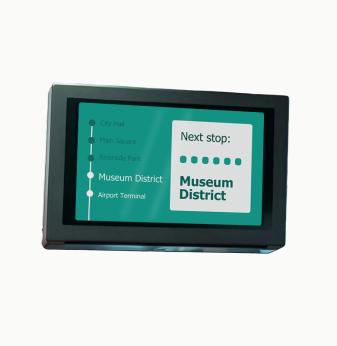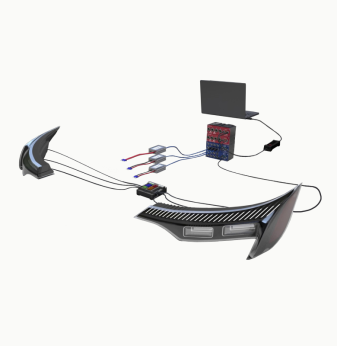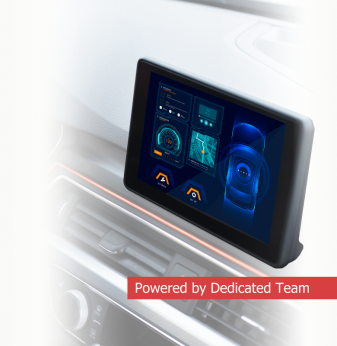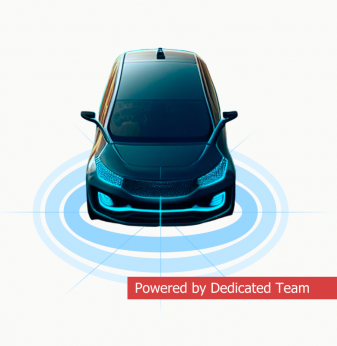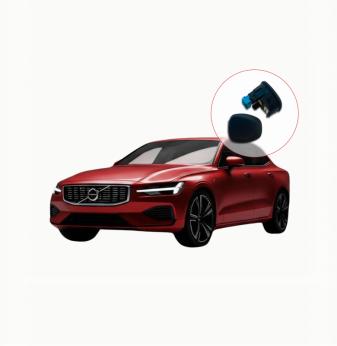
Electronic Control Unit
Automotive ECU Development
Our automotive ECU development services involve programming and optimising electronic control units (ECUs) to ensure the safe operations of multiple modules and systems within electric, hybrid, and internal combustion vehicles.
Meeting ECU software development standards, we create lightning solutions, body and chassis control units, and telematics, access, and control systems. Also, we specialise in HVAC system design and hydraulic and pneumatic solutions development.
How ECU Operates
Providing automotive ECU design services, we aim to establish the seamless coordination of hardware and software components, including automotive city mobility solutions.
Receiving data from sensors and using embedded software algorithms, the electronic controllers can perform real-time calculations and decision-making to ensure smooth operation.
It enables coordination between various vehicle systems through CAN, LIN, and automotive Ethernet communication protocols, allowing the optimisation of custom hydraulic solutions and other critical systems.
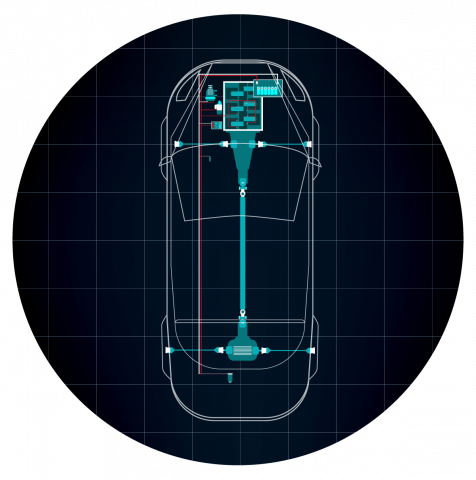
What Guides Our ECU Software Development



Our Services in ECU design
Cab Control Units
Cab control units are used for managing cabin-related features. They include instrument clusters, infotainment modules, climate control, and more.
HVAC Solutions
We offer HVAC software design services, leveraging our expertise to create efficient and precise climate control solutions for vehicles. Our HVAC design company incorporates temperature management, airflow distribution, fan speed, and other features.
Solutions for Interior and Exterior Lighting
We incorporate precise control of lighting functionalities, such as adaptive headlights, ambient lighting, and dynamic signalling, enhancing the vehicle's visibility, safety, and visual appearance.
Pneumatic Solutions
We develop pneumatic solutions that enhance vehicle performance and include such components as pneumatic suspensions, tire inflation units, and compressors.
Body Control Modules
Body control units manage various comfort and safety features, such as lighting systems, power windows, central locking, and wipers. We develop BCM hardware (input and output devices) and software with integrated API.
Chassis Control Units
We enable precise monitoring and optimisation of critical chassis components such as anti-lock braking, electronic stability and traction management. These units utilise advanced algorithms and sensors to enhance the safety and driving experience.
Security Systems for Vehicle Access and Control
Automotive ECU software development services at Promwad enable our clients to implement security features encrypted keyless entry, vehicle immobilisation, protection locks and diagnostic tools for fault detection and prevention of unauthorised modifications.
Hydraulic Solutions
Our automotive ECU design expertise extends to creating custom hydraulic solutions, including hydraulic braking systems and various components for hydraulic-powered machinery.
We tailor controllers for electric vehicles (EVs), focusing on battery management systems, powertrain control, regenerative braking, and integration with charging infrastructure to optimise performance and efficiency.
Tech Map in ECU Development
С/C++, C#, Rust
CAN/LIN, Ethernet
make, cmake
QT6, Storyboard, TARA, MicroEj, TouchGfx
NXP, Renesas, TI, Silicon Labs, Infineon, Cypress, Microchip, Nordic
Eclipse-based tools, .NET nanoFramework, Visual Studio, Segger programming tools
Baremetal | RTOS: FreeRTOS, A-FreeRTOS, Zephyr, TiRTOS, Azure RTOS
ECU-Related Services

Customer requirements elicitation

System architecture design

Functional safety development

Hardware design and reverse engineering

Software and hardware architecture design

Hardware and software verification and validation

Software, hardware, mechanical requirements development

Embedded software development

Unit, integration, system, functional, and HIL testing
We Work With

Mid-sized businesses
We empower businesses creating automotive electronics for EVs by providing dedicated engineering teams to tackle complex challenges, bridge resource gaps, and drive their growth.

Enterprises
We collaborate with large enterprises offering comprehensive support in ECU software and hardware development projects of any complexity.

Tech Partners
We can be your reliable technology partner, crafting tailored solutions to achieve your objectives. Our team is ready to integrate into your project.
Why Promwad

Cross-functional experience
Whether we work on the individual components or build the entire control module, our team analyses the vehicle comprehensively to achieve seamless overall performance and functionality.

Expertise across all vehicles
Our understanding of the control unit specifics in vehicles with internal combustion engines and electric motors is so deep that we can electrify specialised vehicles for our customers.

Safety-focused ECU solutions
Our engineers develop vehicle electronics up to ASIL-C functional safety level. We employ cutting-edge tools to ensure the quality of automotive ECU development.
Our Engagement Models
Time & Material
– Payments for actual hours worked
– Regular reporting of time and results
– Regular communication with the team
– Connecting / disconnecting engineers on request
– Flexible development process
Dedicated Team
– Fixed monthly costs
– Custom-built team with specific competencies
– Fully dedicated engineering team
– Comprehensive IT infrastructure
– Max efficiency for complex projects
Project-Based
– Budget management
– Reduced risk
– Flexible resource allocation
– Clear scope
– Predictable timeline
– Quality control
Case Studies in Automotive Design
Do you need automotive ECU development services?
Drop us a line about your project! We will contact you today or the next business day. All submitted information will be kept confidential.
FAQ
What are the best practices for version control and configuration management in automotive ECU software development?
Such best practices include utilising a version control system to track software changes, implementing branching and merging strategies, maintaining clear documentation, and conducting regular code reviews.
Configuration management involves:
- Managing software configurations.
- Keeping track of software releases.
- Ensuring proper alignment with hardware components.
What are the key considerations for functional safety in ECU design?
Functional safety is critical to ensure the safe and reliable operation of automotive industry software. Key considerations include:
- Identifying potential hazards.
- Implementing safety mechanisms such as redundancy and fail-safe systems.
- Conducting thorough risk assessments, following relevant safety standards.
- Performing rigorous testing and validation to achieve the desired safety integrity level (SIL).
How does ECU development differ for electric vehicles from traditional petrol and diesel engines?
It differs from traditional combustion engine vehicles due to the specific requirements of electric propulsion systems.
ECU design for EVs involves specialised considerations, such as:
- Battery management
- Powertrain management
- Regenerative braking
- Integration with charging infrastructure
The software development focuses on optimising energy usage, managing battery state-of-charge, and enabling efficient power delivery. Additionally, safety considerations related to high-voltage components are critical for the operation of EVs.
What are the considerations for energy efficiency and sustainability in HVAC development?
As an HVAC design company, we include these best practices for energy efficiency and sustainability:
- Incorporating intelligent operating algorithms to optimise energy consumption.
- Utilising advanced sensors for precise temperature and airflow management.
- Implementing eco-friendly refrigerants.
- Exploring thermal management techniques.
Sustainable HVAC development also involves the following:
- Reducing greenhouse gas emissions.
- Designing systems with recyclable materials.
- Considering the end-of-life disposal of HVAC components.
What are the latest advancements in HVAC technology and their impact on automotive ECU software development?
The latest advancements in HVAC system design include integrating advanced sensors and actuators, predictive algorithms for optimised performance, smart and connected features for remote operation and energy management, and environmentally friendly cooling and heating technologies. Additionally, dashcam software integration enhances the ECU software, providing advanced functionalities such as collision detection, lane departure warnings, and real-time video recording.
These advancements require accommodating increased complexity, integrating new functionalities, and improving the HVAC solutions’ performance, energy efficiency, and passenger comfort.

